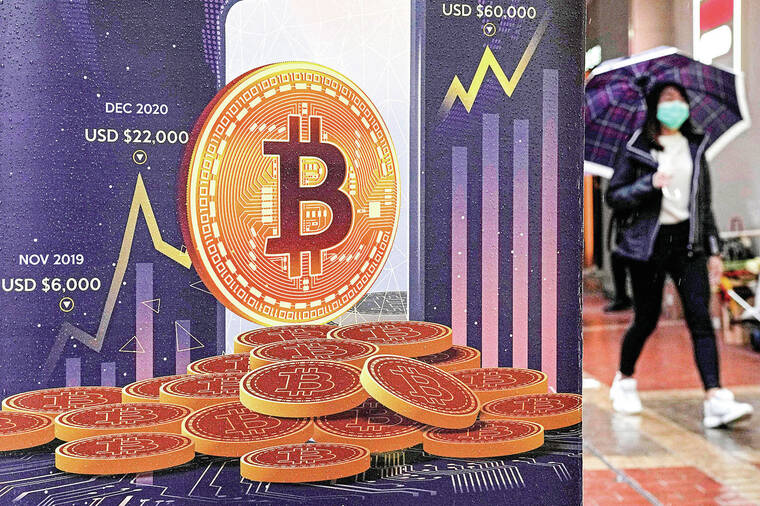Hawaii has quietly gone from one of most restrictive to one of the most open states in the country when it comes to cryptocurrency.
Since 2014, a legal decision by the state has made it ruinously expensive for cryptocurrency companies to operate here, despite the growing proliferation and advancement of the technology.
That decision, explained Joe Kent, executive vice president at the Grassroot Institute of Hawaii, required any crypto company operating in Hawaii to have a valid money transmitter license.
But under the terms of the state Money Transmitters Act, crypto companies would be required to have on hand an amount of cash equivalent in value to all the cryptocurrency the company issued nationwide.
“It was enough to send crypto companies fleeing the islands,” Kent said.
Cryptocurrency has always been at odds with government regulations. Bitcoin, the most prominent example of the technology, originated as a means to specifically avoid government finance regulations and became the currency of choice for illicit transactions on online black markets.
The technology operates by virtue of an immutable digital ledger, called a blockchain, which is collectively maintained by a network of computers and secured through computer encryption. While many cryptocurrencies differ in operation, Bitcoin generates new coins through “mining”: computers compete to solve increasingly complex cryptographic equations, with the winning computer receiving a freshly minted Bitcoin, which at time of writing is worth nearly $52,000.
But in January, the state Division of Financial Institutions “changed its mind,” Kent said.
With little fanfare, the DFI announced on Jan. 25 that digital currency companies will no longer require a money transmitter license to operate in Hawaii and “will be able to continue transaction activity as an unregulated business,” according to the announcement.
The announcement came at the close of a four-year pilot project called the Digital Currency Innovation Lab, which allowed 10 digital currency companies to operate in the state without the money transmitter license. It was through this project, for example, that consumer Bitcoin machines have been allowed to operate in Hawaii gas stations, Kent said.
Following the results of the DCIL, the DFI concluded that “the activities conducted by digital currency companies did not align with the (state’s) concept
of money transmission” and therefore shouldn’t be constrained by
the Money Transmitters Act.
“So, we’ve gone from the worst state for crypto to one of the best,” Kent said. “We’re very happy about opening up new options for consumers.”
Now that crypto companies can more easily operate in Hawaii — although the DFI announcement did not specify when the change in regulations will take effect, nor did a Department of Commerce and Consumer Affairs spokesperson respond to requests for comment — Kent said that more people will be able to access a versatile financial instrument that “is only gaining more and more widespread adoption.”
Kent predicted the looser regulations could allow more “legacy investors” — those whose investments are primarily in traditional instruments like stocks or bonds — to dip their toes into the crypto market. With more investors, and more adoption, he said digital currencies might see regular use as an actual currency beyond their primary usage as speculative investments.
“Some day, you might be able to buy a hot dog with crypto,” Kent said.
That said, cryptocurrencies remain an incredibly volatile asset. The crypto economy crashed in 2022 when prominent crypto exchange company FTX went bankrupt, and the value of any cryptocurrency can fluctuate wildly from day to day, or even hour to hour.
At least one investment company in Hawaii, Edward Jones Investments, does not deal in crypto because of that volatility: “It’s too risky,” said financial adviser Keith Marrack. “We don’t deal with it, and we don’t advise our clients to, either.”
“All we have to say is ‘buyer beware,’” Kent said.
The technology also is controversial for its extreme environmental impact. Because of the energy costs of maintaining multiple identical ledgers of every Bitcoin transaction ever made, as well as the increasing computing power necessary to mine new Bitcoins, the entire Bitcoin network currently is estimated to consume 168 terawatt-hours of electricity annually, according to data from the University of Cambridge.
By comparison, 168 terawatt-hours is roughly the same amount of energy as was consumed by the country of Egypt in 2021.
Email Michael Brestovansky at mbrestovansky@hawaiitribune-herald.com.

